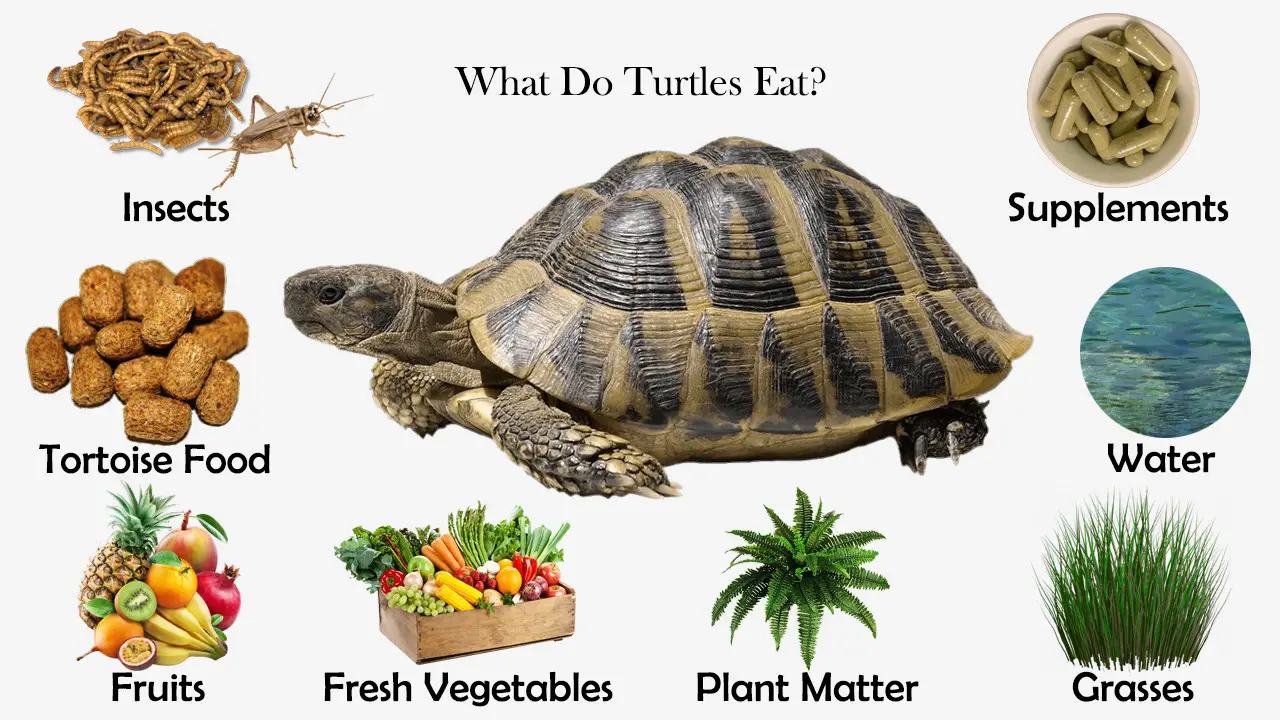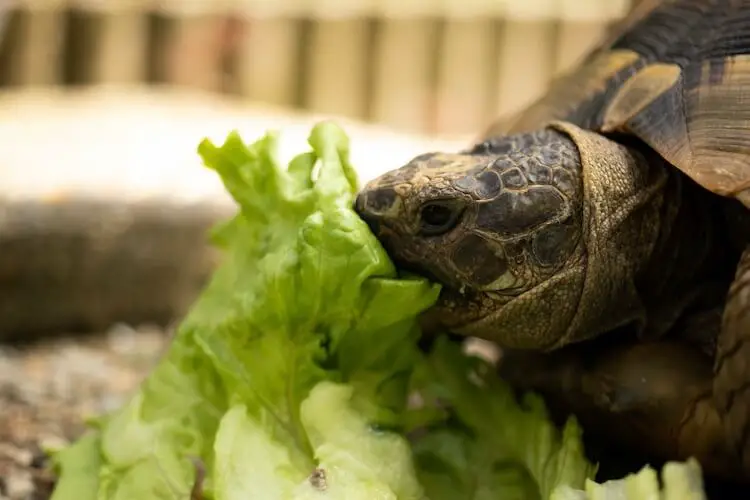Turtles are fascinating creatures that make great pets. As a responsible turtle owner, it is crucial to provide them with a balanced and nutritious diet. In this article, we will explore the various food options available for turtles, focusing on what they can eat at home. By understanding their dietary needs, you can ensure the health and well-being of your beloved shelled friend.

Understanding a Turtle’s Diet
Turtles are omnivorous, meaning they consume both plant and animal matter. Their diet varies depending on their species, age, and size. It is essential to replicate their natural diet as closely as possible to maintain their overall health. Let’s dive into the different food options suitable for turtles.
1. Commercial Turtle Food
Commercial turtle food is readily available in pet stores and is specifically formulated to meet the nutritional requirements of turtles. These pellets or sticks are often fortified with essential vitamins and minerals. Look for high-quality brands that offer a balanced diet for your turtle.
2. Fresh Vegetables and Fruits
Vegetables and fruits should make up a significant portion of your turtle’s diet. Leafy greens like kale, spinach, and romaine lettuce are excellent choices. Other suitable options include carrots, bell peppers, and squash. Fruits such as strawberries, melons, and bananas can be given as occasional treats.
3. Protein-Rich Foods
Protein is essential for a turtle’s growth and development. Offer them a variety of protein-rich foods like insects, worms, and small fish. Crickets, mealworms, earthworms, and shrimp are all excellent choices. It is important to ensure that the insects are gut-loaded or fed with nutritious food before being given to your turtle.
4. Calcium and Vitamin Supplements
Turtles require an adequate amount of calcium for healthy shell development. Calcium supplements in the form of powder or liquid can be sprinkled over their food. Additionally, vitamin supplements can be beneficial to ensure they receive all the necessary nutrients.
5. Avoid Harmful Foods
Certain foods should be strictly avoided as they can be toxic or harmful to turtles. These include chocolate, caffeine, dairy products, processed foods, and anything high in salt or sugar. It is crucial to research and understand which foods are safe for your specific turtle species.
Conclusion
Providing a well-balanced and varied diet is essential for the overall health and longevity of your pet turtle. By incorporating commercial turtle food, fresh vegetables and fruits, protein-rich foods, and necessary supplements, you can ensure that your turtle receives all the essential nutrients it needs. Remember to avoid harmful foods and always consult with a veterinarian for specific dietary recommendations for your turtle.
FAQs
-
Can turtles eat meat?
Yes, turtles are omnivorous and can eat meat. Protein-rich foods like insects, worms, and small fish are suitable for their diet. -
Can turtles eat lettuce?
Yes, turtles can eat lettuce, but it should be given in moderation. Romaine lettuce is a better option compared to iceberg lettuce. -
Do turtles need calcium supplements?
Yes, turtles require calcium for healthy shell development. Calcium supplements can be added to their diet to ensure they receive an adequate amount. -
Can turtles eat fruits?
Yes, turtles can eat fruits as occasional treats. Strawberries, melons, and bananas are some safe options. -
What foods are toxic to turtles?
Chocolate, caffeine, dairy products, processed foods, and anything high in salt or sugar should be avoided as they can be toxic or harmful to turtles.

